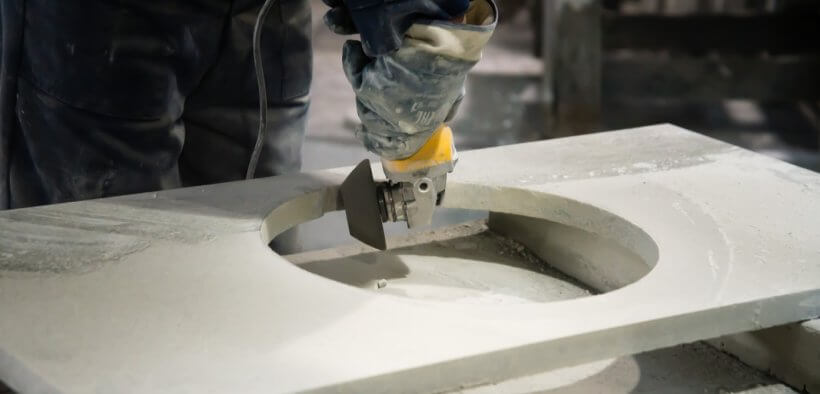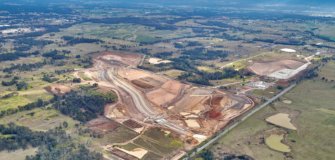Engineered Stone Ban: Safe Work Australia Publishes Damning Report
Martin Sinclair Oct 27

On Friday, Safe Work Australia published the Decision Regulation Impact Statement: Prohibition on the use of engineered stone (Decision RIS).
The Statement was developed by Safe Work Australia at the request of WHS ministers and was informed by stakeholder consultation, independent economic analysis, and an expert review of evidence.
The Statement recommends a prohibition on the use of all engineered stone, irrespective of crystalline silica content, to protect the health and safety of workers.
Safe Work recogised a failure “to ensure the health and safety of all workers working with engineered stone.
The only way to ensure that another generation of Australian workers do not contract silicosis from such work is to prohibit its use, regardless of its silica content.”
The HRIA has previously alerted members to the risks posed by the cutting of products containing silica, including guidance on working with silica dust with resources such as those supplied by Work Safe Australia as well as from HRIA members like APG.
The new asbestos
The report was released on Friday afternoon following a national meeting of workplace safety ministers, led by federal Workplace Relations Minister Tony Burke, who earlier referred to the crisis as “the new asbestos”, after federal, state, and territory leaders commissioned the watchdog to investigate the effects of a potential ban.
The recommendation for a prohibition is based on the following:
- Engineered stone workers exposed to respirable crystalline silica (RCS) are significantly over-represented in silicosis cases. Engineered stone workers are being diagnosed with silicosis at a much younger age than workers from other industries.
- Engineered stone is physically and chemically different to natural stone. The high levels of RCS generated by working with engineered stone, as well as the differing properties of this RCS, are likely to contribute to more rapid and severe disease.
- There is no toxicological evidence of a ‘safe’ threshold of crystalline silica content in engineered stone, or that other chemicals found in engineered stone do not pose a health risk to workers.
- Silicosis and silica-related diseases are preventable. However, a persistent lack of compliance with, and enforcement of, the obligations imposed under WHS laws across the engineered stone industry at all levels have not protected workers from the health risks associated with RCS.
This Decision RIS builds on the evidence and analysis previously considered by WHS ministers in, and should be read in conjunction with, the Decision Regulation Impact Statement: Managing the risks of respirable crystalline silica at work.
The Decision Regulation Impact Statement: Prohibition on the use of engineered stone, and responses to the public consultation can be downloaded from the Safe Work Australia website.
The timing of a decision by WHS ministers on the prohibition on the use of engineered stone is a matter for government. Information on meetings of WHS ministers can be found on the Department of Employment and Workplace Relations website.
More about RIS can be found on Safe Work Australia’s website with the links below.
- About respirable crystalline silica and engineered stone
- About Safe Work Australia
- Decision RIS: Background
- Decision RIS: Impact analysis and recommendations
- Decision RIS: Consultation
- Decision RIS: Next steps
- I work with engineered stone, or previously did…
- Information for businesses
- Information for consumers and the general public
- Decision Regulation Impact Statement: Prohibition on the use of engineered stone
- Crystalline silica and silicosis
- Crystalline silica and silicosis – Impact analysis and consultation
- Crystalline silica and silicosis – Recommendation on a prohibition on the use of engineered stone
- WHS ministers’ meeting 27 October 2023 – Communique










